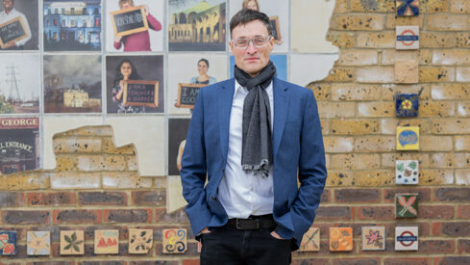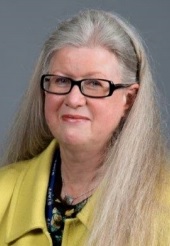Principal
|
|
William Pickford has had an “eclectic” 25-year career in FE which has seen him opening a college on a faraway tropical island, overseeing another as it was evicted due to local authority financial mismanagement, and now, leading London’s only ‘outstanding’ council-run adult education service. Since 2021, he has been the principal of Redbridge Institute of Adult Education. He was described 20 years ago by a fellow educator as a “maverick” and admits “it is a moniker I’ve tried to live up to ever since.” Pickford’s time at Redbridge has been one of rapid change for the adult education sector, and some of that has been “painful”. Half of its curriculum has changed since Covid to reflect shifting national funding priorities. The institute traces its history back to 1903 when East London’s first adult education courses included French, shorthand, dressmaking, cookery, bookkeeping and drawing. But the purpose of publicly funded adult education drastically altered with the 2021 skills white paper and ensuing local skills improvement plans, which align adult education budget funding to skills gaps. He sees adult education as now split between “two completely different cohorts” – one for “basic skills” and the other, which has shrunk considerably, for “more traditional” informal learning. “But adult education should be for everyone.” The sector’s marketing materials haven’t caught up with the pace of change. Pickford says that “every picture you see of adult learning” tends to be of “the photogenic bits – the creative arts courses, the pottery being made”. But this “doesn’t represent the reality”. “We need to be careful. The reality [of adult education] is ESOL, maths, and digital skills, but we still love putting pictures of art shows on our publicity.” And while Redbridge is “still funded as though it were a leafy London suburb”, the borough now hosts the highest number of asylum seekers and refugees in London. As a result, 62 per cent of its adult skills provision is now ESOL, and there is a waiting list of 350 people waiting to access it. Many of the institute’s learners are newly arrived migrants placed in Redbridge by the Home Office with only two weeks’ notice, and they are often moved on “at a moment’s notice” too. It makes planning tricky. Pickford shows me around the former pilates, yoga and dance studios that have been transformed into learning and employability hubs and ESOL classrooms, and the hair and nail studio that’s now a skills and enterprise hub. It has been a “painful journey”. The pilates classmates in particular would not surrender without a fight. “Oh crumbs, they were very vocal – writing to everyone they could, the Mayor of London, the local councillors, Ofsted, and GLA funders. “People just don’t understand that that’s no longer what our funders tell us our priorities are. They say, ‘we’ve been doing those sessions for years and years. Why can’t we continue?’” The city boyAlthough his childhood home on a farm (“mostly sheep”) on the outskirts of a “tiny village” in Somerset might sound idyllic, he “hated it” as he “had to be ferried everywhere, and there wasn’t much to do”. Pickford had been a “lifelong” Manchester United fan since his Mancunian grandfather took him to see them play in the city as a boy. It was part of the reason why he chose Manchester University to study. He was the first in his family to go to university but ignored their advice to study “a proper subject” like law or business, instead opting for hotel and catering management. He trained with Stakis Hotels in the Scottish Cairngorms, but “hated it for the same reasons” he left Somerset: it was “miles away from anywhere”. He “couldn’t wait to get out”, and moved to the bright lights of London where he turned his attention to hotel events management. He applied for a PGCE course “on a whim” because he “quite fancied that teaching lark”. His intention was to teach hospitality, but he never got the chance as his first job in 1998 was at Orpington College (now part of LSEC), which lacked a hospitality department. Instead, he taught business, accounting and economics among other things, because “you don’t say no to anything”. As a gay man, Pickford said the FE sector “provided me with the first safe space where I felt comfortable enough talking about who I really was. 25 years ago, that was a really big thing.” Pickford then spent seven years promoting digital learning for two big government organisations – as head of innovation at Jisc, and head of provider capacity for Becta, based at the University of London. It was an “exciting” time for the sector in the early 2000’s with “lots of money sloshing around” for digital projects, with the dawn of e-learning and smart boards. Pickford recalls Becta having a budget of £21 million one year to give away to colleges. Digital collaborationSome “really exciting ideas” were born from the mentality of “not being afraid of failing, because there were no consequences”. The funding was simply conditional on recipients sharing their successes and failures with others in the sector. One notable success was the open-source software Moodle, one of the first virtual learning environments which became a “pooled shared service” for universities and colleges. Becta was axed in David Cameron’s bonfire of the quangos, but Moodle outlasted it. He believes there is not enough of that type of sector-wide collaboration now, because “you need that brokerage”. These days East London providers work together when it comes to ESOL, with Redbridge and New City College referring potential students to each other because “there’s so much work to go around”. And the GLA is planning a London-wide ESOL strategy. Turning around collegesPickford spent the next few years in interim roles. His first involved turning around what was then the only specialist women’s residential college in the country, Hillcroft (now part of Richmond and Hillcroft Adult Community College), after an inadequate Ofsted in 2013. The college used to be for “tweedy middle aged white women”. But the area’s demographics had shifted, and the college “hadn’t moved fast enough for the times”. Pickford was told to make the curriculum more relevant to local needs. He also interim-ed for Stanmore College and Westminster Kingsway College. These short-term roles did not give him a complete “sense of achievement” because “you never get to see the outcomes” of the measures put in place. Bali bureaucracyPickford’s next career move took him to Bali, where he and his long-term partner, who is Indonesian, opened a private training college to prepare locals for joining Australian universities. The experience gave him an appreciation for the English public sector. Pickford found they were “at the whim of our investors deciding to change course” and “everything was so bureaucratic”. Each year the college had to be accredited by both the Ministry of Manpower and the Ministry of Education, with “the strangest Ofsted type regime you could imagine”. Despite Bali being a “very pleasant place to live”, Pickford would spend every other weekend “jetting off to New Zealand, Singapore and Bangkok … just to experience crowds again”. He returned after four years because he “missed England, and the public sector”. Essex bluesBut Pickford’s next role in 2018, as vice principal at Thurrock Adult Community College, did not exactly exemplify public sector excellence. Thurrock Council had embarked on an infamous spending spree in the solar power market which led to its bankruptcy four years later. Seeking extra cash, the council made a “shock” announcement they were demolishing the college’s building to sell the land. The college staff and learners were given just two months’ notice to leave the site in Greys, where the college had been based for the previous 30 to 40 years. “The writing was on the wall” at that point for the council, which Pickford said “didn’t care” where the learners went. Pickford put moving plans in motion, then moved on to Redbridge. |
Previous Principals/CEOsJoni Cunningham
I qualified as a Science and Health Education teacher and taught in secondary schools before completing two years with VSO. I have held appointments as City & Guilds Regional Moderator for teacher training and Examiner for Royal Institute of Public Health and Hygiene. I have worked for the Norfolk LEA inspection and advisory team advising on organisation and professional development in post-16 providers across the county. I have served on the board of the London Stansted Cambridge Corridor (LSCC) and the work based learning board of study for Middlesex University. I have held management posts in two FE colleges. During this time I worked on a number of partnership projects including Dental Health for ethnic minority groups in Haringey, Schools Involvement with the Metropolitan Police and Community Learning Champions in Harlow. I am Vice Chair of Holex and a Director on the Association of Adult Education and Training Organisations (AAETO) Board. I also act as Holex special adviser on leadership, governance and safeguarding (including Prevent) for the ACL sector and was one of the AoC National Leaders of Governance in 2016-17. I have published journal articles on management development, peer review, work based learning and mentoring. I have chaired the local authority strategic partnership for employment and skills for six years during which time the partnership has worked well together identifying strategic objectives to ensure provider plans meet local employment needs. |


 There is no biographic profile on the website. This information is from
There is no biographic profile on the website. This information is from 
 During my time as Principal at the Institute I have been passionately committed to developing a strong partnership culture and a responsive, flexible service believing that only by working together with our local community and business partners can we raise participation and achievement as well as equalising opportunity through better access to learning for disadvantaged learners in Redbridge. I have led on a number of sustainability initiatives at the Institute and am currently a judge for the national Green Gown Awards.
During my time as Principal at the Institute I have been passionately committed to developing a strong partnership culture and a responsive, flexible service believing that only by working together with our local community and business partners can we raise participation and achievement as well as equalising opportunity through better access to learning for disadvantaged learners in Redbridge. I have led on a number of sustainability initiatives at the Institute and am currently a judge for the national Green Gown Awards.